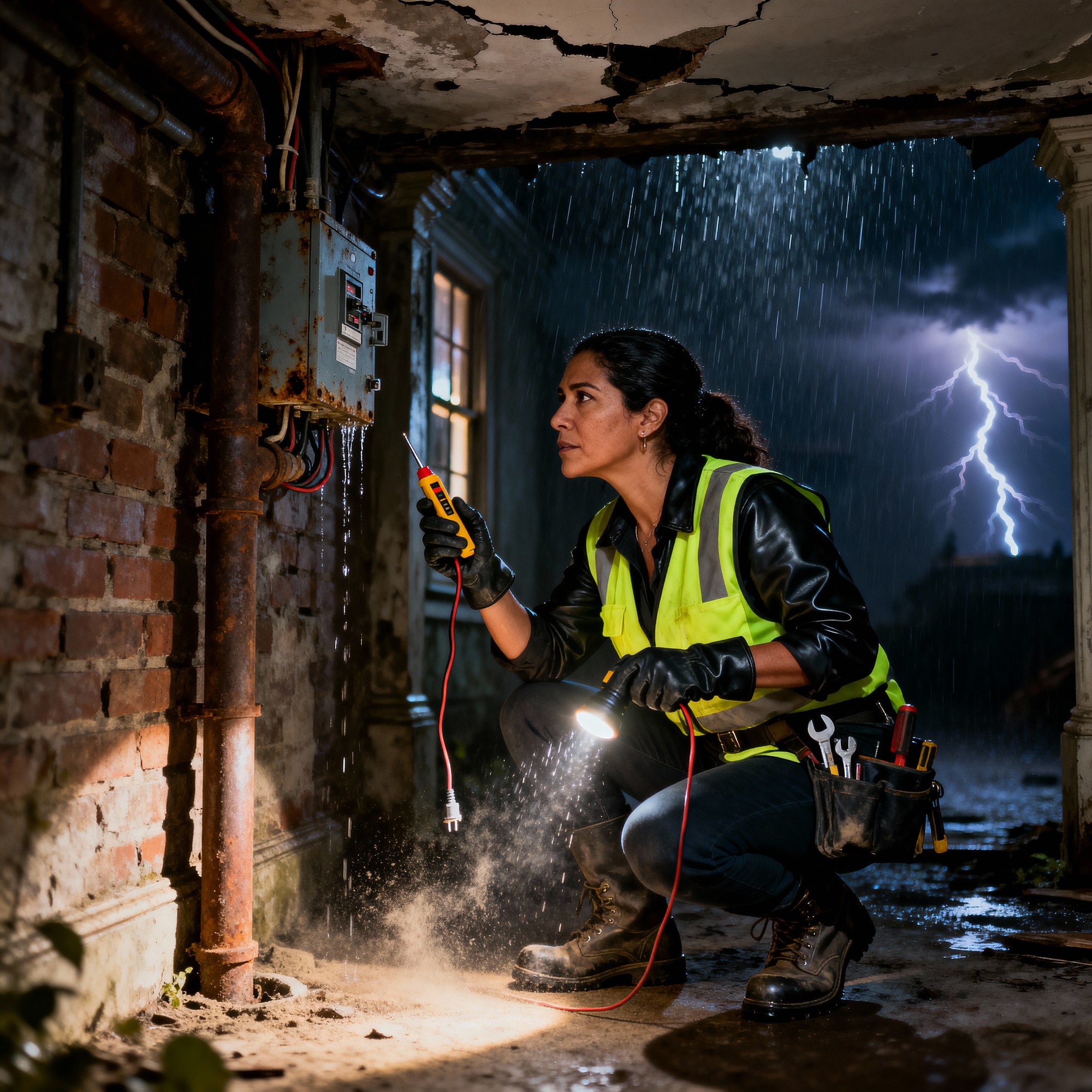When electrical issues arise in your Parker, Colorado home, finding a qualified licensed electrician becomes a top priority. Whether you're dealing with flickering lights, planning a major renovation, or need an emergency repair, choosing the right professional can mean the difference between a safe, lasting solution and costly problems down the road.
Understanding Colorado Electrical Licensing Requirements
Colorado maintains strict licensing requirements for electrical contractors to ensure public safety and professional standards. A licensed electrician in Parker must hold a valid Colorado electrical license issued by the state's Department of Regulatory Agencies (DORA). This licensing system includes several categories:
Master electricians represent the highest level of certification, requiring extensive experience and comprehensive testing. These professionals can perform all types of electrical work and supervise other electricians. Journeyman electricians have completed their apprenticeship and can perform most electrical work under proper supervision. Residential wiremen specialize specifically in residential electrical systems.
Always verify that any electrician you're considering has current, valid licensing. You can check license status through Colorado's online database, which provides real-time information about license validity, any disciplinary actions, and expiration dates.
Essential Qualifications to Look For
Beyond basic licensing, several key qualifications distinguish exceptional electrical contractors from the rest. Insurance coverage stands as perhaps the most critical factor after licensing. A reputable electrician should carry both general liability insurance and workers' compensation coverage. This protection shields you from potential liability if accidents occur on your property.
Experience with local building codes and permit processes proves invaluable for Parker residents. Douglas County, where Parker is located, has specific electrical code requirements that may differ from other jurisdictions. An electrician familiar with local inspection processes can ensure your project proceeds smoothly without delays or compliance issues.
Professional certifications from manufacturers or industry organizations demonstrate ongoing education and specialization. Look for certifications in areas relevant to your needs, such as smart home technology, solar installations, or electric vehicle charging systems.
Evaluating Experience and Expertise
The complexity of modern electrical systems demands specialized knowledge and hands-on experience. When evaluating potential electricians, consider their track record with projects similar to yours. A contractor who primarily works on commercial buildings may not be the best choice for intricate residential wiring challenges.
Ask about their experience with your home's specific electrical system type. Older Parker homes may have unique wiring configurations that require specialized knowledge, while newer construction might involve advanced smart home integration or energy-efficient systems.
Request references from recent customers and take time to contact them. Previous clients can provide valuable insights into work quality, timeliness, communication, and overall satisfaction. Don't hesitate to ask about any challenges that arose during the project and how the electrician handled them.
Red Flags to Avoid
Certain warning signs should immediately raise concerns about an electrical contractor's legitimacy and professionalism. Door-to-door solicitation represents a major red flag, especially if the person claims to have noticed electrical problems from outside your home. Legitimate electrical contractors typically don't need to solicit business this way.
Demands for full payment upfront should trigger immediate skepticism. Professional contractors typically request a reasonable deposit with the balance due upon completion. Be wary of estimates significantly lower than others you've received, as this often indicates corner-cutting or hidden costs that will emerge later.
Lack of proper licensing, insurance, or reluctance to provide proof of these credentials should end your consideration immediately. Any contractor unwilling to pull necessary permits or suggesting you can skip the permit process is not operating professionally.
Understanding Pricing and Estimates
Transparent pricing reflects a contractor's professionalism and helps you make informed decisions. Quality electrical contractors provide detailed written estimates that break down labor, materials, and any additional costs. This transparency allows you to understand exactly what you're paying for and compare proposals effectively.
Be cautious of estimates that seem unusually low or high compared to others. Extremely low bids often indicate the use of substandard materials, inexperienced workers, or plans to add costs later. Conversely, dramatically high estimates may suggest inflated pricing or unnecessary work.
Ask about warranty coverage for both labor and materials. Reputable electricians stand behind their work with comprehensive warranties that protect your investment. Understanding warranty terms upfront prevents disputes if issues arise later.
The Importance of Local Knowledge
Parker's unique characteristics require electricians with specific local knowledge and experience. The area's rapid growth has created neighborhoods with varying electrical infrastructure ages and types. An electrician familiar with local utility companies, inspection processes, and common residential electrical challenges can navigate these complexities more efficiently.
Local contractors also understand regional weather patterns and their impact on electrical systems. Colorado's intense sun, hail storms, and temperature fluctuations can affect electrical components in specific ways that require targeted solutions.
Established local electricians have relationships with suppliers, inspectors, and other trades that can benefit your project. These connections often translate to better material pricing, faster permit processing, and coordinated scheduling for complex projects.
Emergency Service Availability
Electrical emergencies don't follow business hours, making emergency service availability a crucial consideration. Power outages, sparking outlets, or burning smells require immediate professional attention to prevent safety hazards or property damage.
When evaluating electricians, ask about their emergency service policies, response times, and after-hours availability. Some contractors offer 24/7 emergency service, while others may have limited availability outside normal business hours.
Understand the cost structure for emergency calls, as these typically involve premium pricing. However, the safety and protection of your family and property justify the additional expense when genuine emergencies occur.
Making Your Final Decision
After gathering information from multiple contractors, take time to evaluate all factors comprehensively. The lowest bid isn't always the best value, especially when safety and long-term reliability are considerations. Focus on finding the best combination of qualifications, experience, pricing, and communication.
Trust your instincts about communication and professionalism. An electrician who takes time to explain problems clearly, answers your questions patiently, and demonstrates genuine concern for your safety and satisfaction is likely to provide superior service throughout your project.
Consider the long-term relationship potential. Electrical systems require ongoing maintenance and occasional updates, making it valuable to establish a relationship with a reliable contractor who understands your home's specific needs and history.
Preparing for Your Electrical Project
Once you've selected a licensed electrician, proper preparation ensures smooth project execution. Clear communication about your expectations, timeline, and any special requirements helps prevent misunderstandings. Discuss access needs, work area preparation, and any disruptions to your daily routine.
Ensure all necessary permits are obtained before work begins. Your contractor should handle permit applications, but understanding the process helps you track progress and ensure compliance with local requirements.
Document the project scope and timeline in writing. This documentation protects both parties and provides reference points if questions arise during the work. Include specific materials, labor details, and completion schedules in your agreement.
Finding the right licensed electrician in Parker, CO requires careful research and evaluation, but the investment in this process pays dividends in safety, quality, and peace of mind. By focusing on proper licensing, insurance, experience, and local knowledge, you can confidently select a professional who will deliver exceptional results for your electrical needs.


